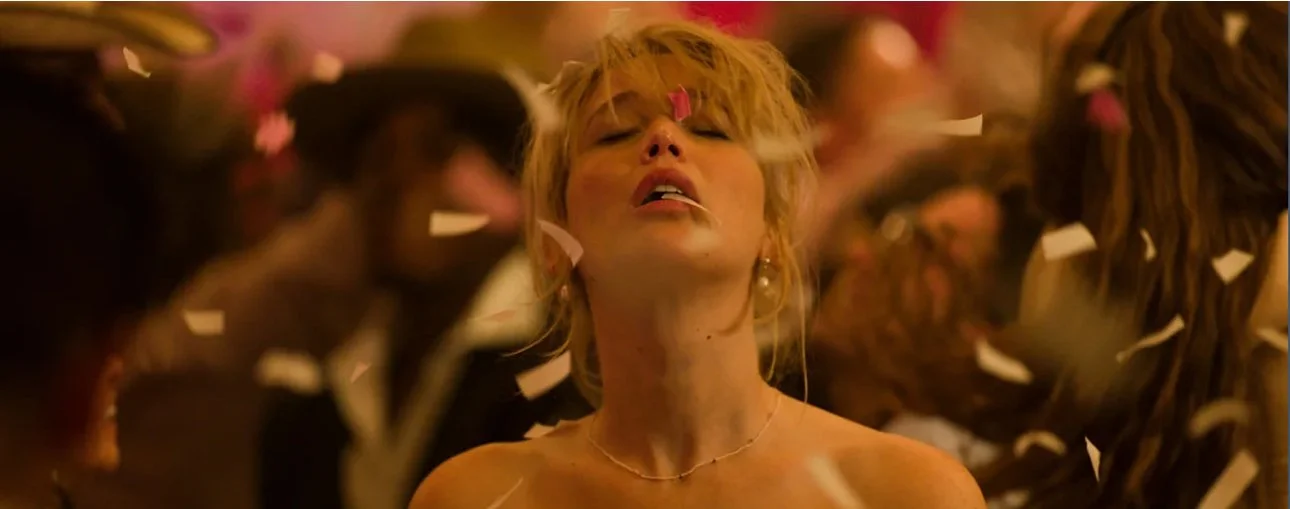You can often tell how a film will land at Cannes not by the critics’ chatter afterward, but by the sound in the room as the end credits begin to roll. In the Debussy Theatre, the audience has a language all its own—measured in applause, silence, murmurs, and, on rare occasions, a smattering of boos. This year, that language has leaned unusually polite. Even the most middling efforts have earned generous applause.
But tonight, as the lights came up after Lynne Ramsay’s “Die, My Love,” the mood shifted. There was a strange quiet in the theater, as if the film had stunned the room into submission—or simply left it unsure what it had just seen. A few cheers, scattered and uncertain. A few boos, equally tentative. Mostly, though, there was silence. Not the reverent kind, but the puzzled kind. It was the sound of people reaching for the right emotion and coming up empty.
So, what about “Die My Love”? Much like any Ramsay film, it’s formally bold with inventive editing and sound. It’s also an acting triumph — the incredible lead performance will most likely get nominated for an Oscar.
Jennifer Lawrence has never been one for half-measures, but it’s been a while since we’ve seen her go this raw, this unfiltered, this dangerous. In “Die, My Love,” which just premiered in Cannes, she taps into something wild and uncontainable—a performance that jolts the entire film to life.
Adapted from Ariana Harwicz’s novel, “Die, My Love” opens with what looks like domestic bliss. Grace (Lawrence) and Jackson (Robert Pattinson) move into a rundown house in rural Montana, far from their old life in New York. There’s sex, laughter, and the promise of reinvention. But this is a Lynne Ramsay film—something’s rotting beneath the floorboards.
It doesn’t take long to surface. Grace gives birth to a baby boy, and the spiral begins. Postpartum depression curdles into full-blown psychosis. Her connection to Jackson deteriorates. She lashes out. She drifts through the woods at night, barely in tune to reality. Ramsay’s camera follows her into the abyss, crafting a sensory assault that’s more hallucination than narrative. Scenes start mid-thought and end without warning. Time bends. Logic evaporates.
Pattinson is solid as the bewildered partner, but it’s Sissy Spacek who steals scenes. As Jackson’s mother Pam, she watches Grace unravel with a mix of horror and recognition. There’s a moment between them, no words, just shared glances, but again, recognition.
Ramsay (“We Need to Talk About Kevin,” “You Were Never Really Here”) is in her comfort zone here, fusing dread and lyricism like few directors can. The sound design is relentless: buzzing flies, distant howls, silence that suffocates.
If “Die, My Love” falters, it’s in the way the film circles itself. Ramsay seems more interested in evoking madness than diagnosing it—which works, until you start noticing how little anyone tries to actually help Grace.
The story also gives us little in the way of traditional narrative structure —no mystery to solve, no goal to chase— just Grace, flailing through a waking psychosis that never quite releases its grip. Cinematographer Seamus McGarvey shoots it all with the hazy dread of a dream, the kind that leaves you disoriented.
“Die, My Love” can feel adrift at times, languid in its unraveling, but what makes the film really work, though, is Lawrence. Her performance is a revelation — teetering between cosmic clarity and total collapse. One minute she’s mocking the small talk of suburban moms, the next she’s breaking glass with her bare hands. Lawrence reminds us why she became a star in the first place—and why we started to wonder if the spotlight had dulled her edge.






